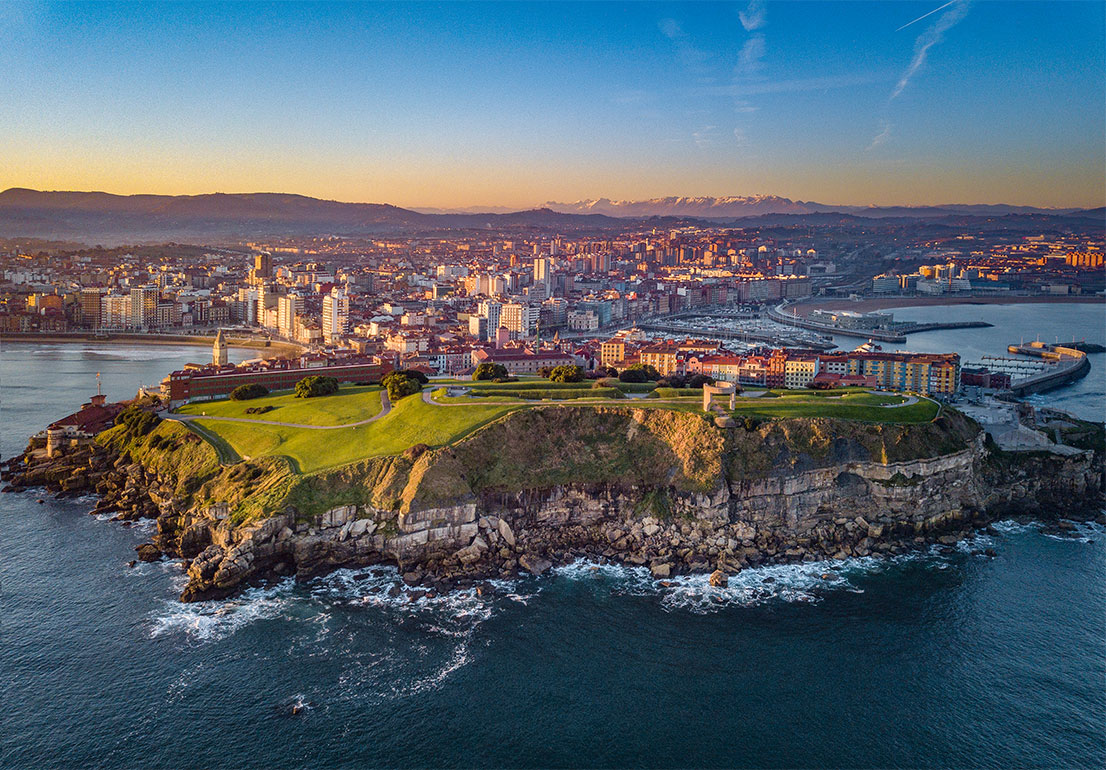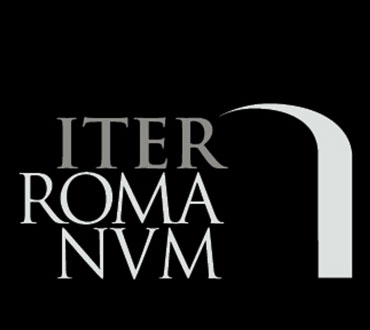II ROMAN ROADS SEMINAR
The Roman Heritage Cooperation Network – ITER ROMANUM, is a collaborative project in the fields of cultural heritage, education and tourism in Europe. It aims to publicise and promote the Roman roads and sites that form the Network. Different activities are held each year to fulfil its objectives and these include seminars that examine in depth particular topics related to the project.
The first seminar was held in the city of Braga (Portugal) in September 2021. With the title “Roman Roads in Europe”, it addressed such aspects as research projects about Roman roads and their territory, as well as strategies for the promotion of cultural routes and associations related to European cultural routes.
This second seminar, to be held in Gijón (Asturias, Spain) in October 2024, will focus on three complementary topics: the role of cultural and archaeological heritage as a resource for tourism and development; the impact (positive and negative) of this phenomenon on the territory; and thirdly, its effect on local communities.
Mainly through roundtable discussions, this II Roman Roads Seminar will encourage the exchange of ideas and debates about these topics with an international and inter-disciplinary panel of speakers.
Programme
Thursday 3rd October
10:00
Registration.
10:30
Official opening of the seminar.
11:00
Opening lecture: “The contemporary expression of the heritage itinerary, starting from Via XVIII (Via Nova, Bracara Augusta–Asturica Augusta)”. Miguel Bandeira.
11:30
Coffee break.
12:00
1st Round Table: Archaeological and Cultural Heritage, Tourism and Territorial Development: Conflicts.
- Keynote speaker:Nekbet Corpas. “Thinking through conflicts in archaeological heritage: the role of tourism”.
- Round Table participants: Patricia Hevia (moderator), Jere Drpić, Clara María Martín, Aitor Martínez and Felix Palma.
13:00
Open discussion.
13:20
Conclusions. Patricia Hevia.
13:30
Lunch. GUSTATIO ROMANA (Price: 15 euros. Registration required).
15:00
2nd Round Table: Archaeological and Cultural Heritage, Tourism and Territorial Development: Strategies.
- Keynote speaker: “Archaeological research as a strategy for enhancing tourist destinations”. Silvia Fernández Cacho.
- Round table participants: Rafael Mata (moderator), Manuel León, Daniel Martínez and Danijela Vicentijevic.
16:00
Open discussion.
16:30
Conclusions. Rafael Mata.
17:00
Tour of the archaeological sites in Gijón (free – registration required).
With a duration of 2 hours.
Friday, 4th October
09:30
Presentations of case-studies, experiences and proposals (10 -15′ maximum/each).
11:30
Coffee break.
12:00
3rd Round Table: Archaeological cultural heritage, tourism and territorial development: Solutions and Management.
- Keynote speaker: Laure Lévêque “The role of the Roman Roads”.
- Round Table participants: Elena Pérez (moderator), Antonio Barone, Monique Clavel-Lévêque, Jon Insausti.
13:00
Open discussion.
13:30
Conclusions. Elena Pérez.
13:45
General conclusions of the II ROMAN ROADS SEMINAR. Almudena Orejas Saco del Valle.
16:30
Guided tour of the Archaeological-Natural Park of Campa Torres and the Roman Villa of Veranes Museum.
Price: 8 euros. Registration required.
With a duration of 2 hours.
Meeting point: C/Rodríguez San Pedro (next to “Las Letronas”).
Registration
Registration for the II Seminar on Roman Roads will be open from 30 April to 15 September 2024.
You can register for the Seminar in two ways:
A: Registration free of charge. Attendees will not receive documentation. It includes attendance at the seminar, coffee breaks, and the visit to Gijón’s archaeological resources (Roman Baths museum at Campo Valdés and the Late Roman wall) on Thursday, 3 October if requested in advance.
B: Registration with a fee of 15.00 euros. In addition to the activities included in the free registration, it also covers the documentation (seminar materials and pack) and an attendance certificate (9 hours).
PRESENTATIONS
Attendees will be able to contribute presentations related to the theme of the seminar on Friday, 4 October, from 10.00 to 11.30 a.m., with the following conditions:
- The presentations will last about ten minutes and can be supported by a PowerPoint slideshow.
- If you are interested, you must submit your proposal on the registration form. Give a title and a brief summary of a maximum of 50 words.
- The acceptance of communications by the Scientific Committee will be notified via email before September 12th.
- The Seminar Secretary may request further information about the summary if considered necessary.
COMPLEMENTARY ACTIVITIES
Attendees can choose to take part in two complementary activities:
- The Gustatio on Thursday, 3 October: 15.00 euros.
- The guided visit to the Archaeological-Natural Park of Campa Torres and the Villa of Veranes Museum on Friday, 4 October: 8.00 euros.
You can take part in the II Seminar on Roman Roads by completing the registration form.
You will be sent an email confirming your registration in the seminar at the end of the period for registration.
Maximum number of attendees: 90. Priority will be given to registrations of Type B.
FORM OF PAYMENT
The email confirming registration will give details of the form of payment.
Contact: [email protected]
SPEAKERS and roundtable participants
Miguel Bandeira
VICE- RECTOR FOR SUSTAINABILITY AND MANAGEMENT OF THE CAMPUSES OF THE UNIVERSITY OF MINHO
Antonio Barone
INTERNATIONAL ASSOCIATION OF THE PHOENICIANS' ROUTE. CULTURAL ROUTE OF THE COUNCIL OF EUROPE. DIRECTOR
Patricia Hevia
HEAD OF THE HERITAGE AND ARCHAEOLOGY SERVICE OF THE DEPUTY MINISTRY OF CULTURE AND SPORTS OF THE REGIONAL GOVERNEMENT OF CASTILLA-LA MANCHA
Jon Insausti
COUNCILOR FOR CULTURE, BASQUE LANGUAGE AND TOURISM. DONOSTIA/ SAN SEBASTIÁN
Aitor Martínez
DIRECTOR OF THE MUNICIPAL FOUNDATION OF CULTURE, EDUCATION, AND POPULAR UNIVERSITY OF GIJÓN/XIXÓN
Rafael Mata
PROFESSOR OF REGIONAL GEOGRAPHIC ANALYSIS IN THE DEPARTMENT OF GEOGRAPHY. AUTONOMOUS UNIVERSITY OF MADRID
Almudena Orejas
RESEARCH PROFESSOR. DEPARTMENT OF ARCHAEOLOGY AND SOCIAL PROCESSES (INSTITUTE OF HISTORY). SPANISH COUNCIL FOR SCIENTIFIC RESEARCH (CSIC)
Felix Palma
DIRECTOR OF THE CONSORTIUM MONUMENTAL HISTORICAL- ARTISTIC AND ARCHAEOLOGICAL CITY OF MÉRIDA
Elena Pérez
ASSOCIATE PROFESSOR. EUROPEAN UNIVERSITY OF THE CANARY ISLANDS (FACULTY OF SOCIAL SCIENCES)
Danijela Vicentijevic
SENIOR ADVISOR. MINISTRY RESPONSIBLE FOR TOURISM OF THE REPUBLIC OF SERBIA
Location

Gijón/Xixón is the most populated city in Asturias, origin or end of the Ruta Vía de la Plata.
Its more than 2000 years of history have bequeathed pre-Roman and Roman ruins, Baroque palaces and numerous examples of Modernism and Art Nouveau.
Always linked to the sea and its important port, the picturesque fishing quarter of Cimavilla, the beaches and the famous promenade of San Lorenzo, the impressive Laboral City of Culture and its gastronomic offer, in which fish, seafood and cider stand out.
Centro de Cultura Antiguo Instituto
C. Jovellanos, 21, Centro.
33201 Gijón, Asturias.





